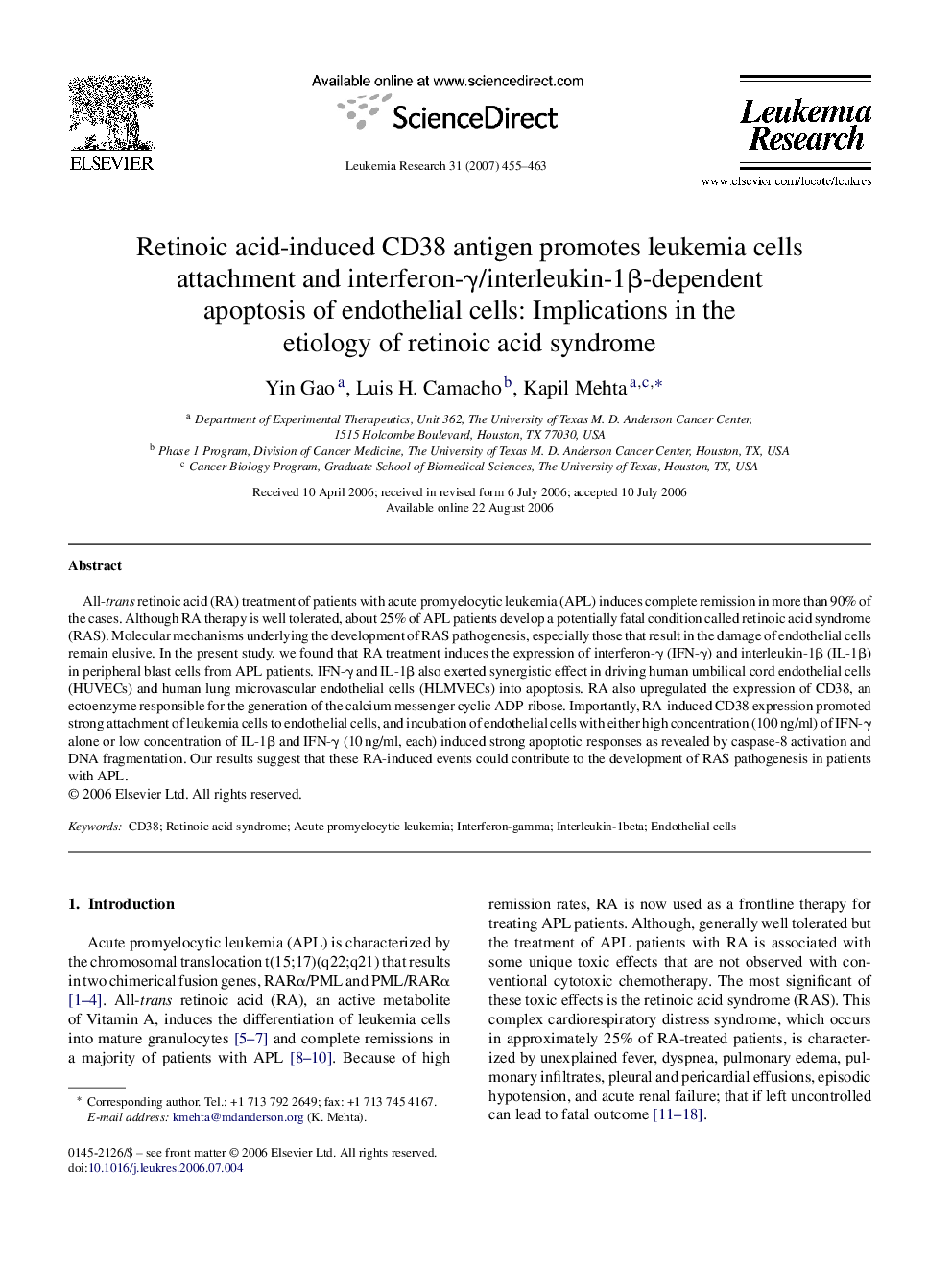| Article ID | Journal | Published Year | Pages | File Type |
|---|---|---|---|---|
| 2138502 | Leukemia Research | 2007 | 9 Pages |
All-trans retinoic acid (RA) treatment of patients with acute promyelocytic leukemia (APL) induces complete remission in more than 90% of the cases. Although RA therapy is well tolerated, about 25% of APL patients develop a potentially fatal condition called retinoic acid syndrome (RAS). Molecular mechanisms underlying the development of RAS pathogenesis, especially those that result in the damage of endothelial cells remain elusive. In the present study, we found that RA treatment induces the expression of interferon-γ (IFN-γ) and interleukin-1β (IL-1β) in peripheral blast cells from APL patients. IFN-γ and IL-1β also exerted synergistic effect in driving human umbilical cord endothelial cells (HUVECs) and human lung microvascular endothelial cells (HLMVECs) into apoptosis. RA also upregulated the expression of CD38, an ectoenzyme responsible for the generation of the calcium messenger cyclic ADP-ribose. Importantly, RA-induced CD38 expression promoted strong attachment of leukemia cells to endothelial cells, and incubation of endothelial cells with either high concentration (100 ng/ml) of IFN-γ alone or low concentration of IL-1β and IFN-γ (10 ng/ml, each) induced strong apoptotic responses as revealed by caspase-8 activation and DNA fragmentation. Our results suggest that these RA-induced events could contribute to the development of RAS pathogenesis in patients with APL.
